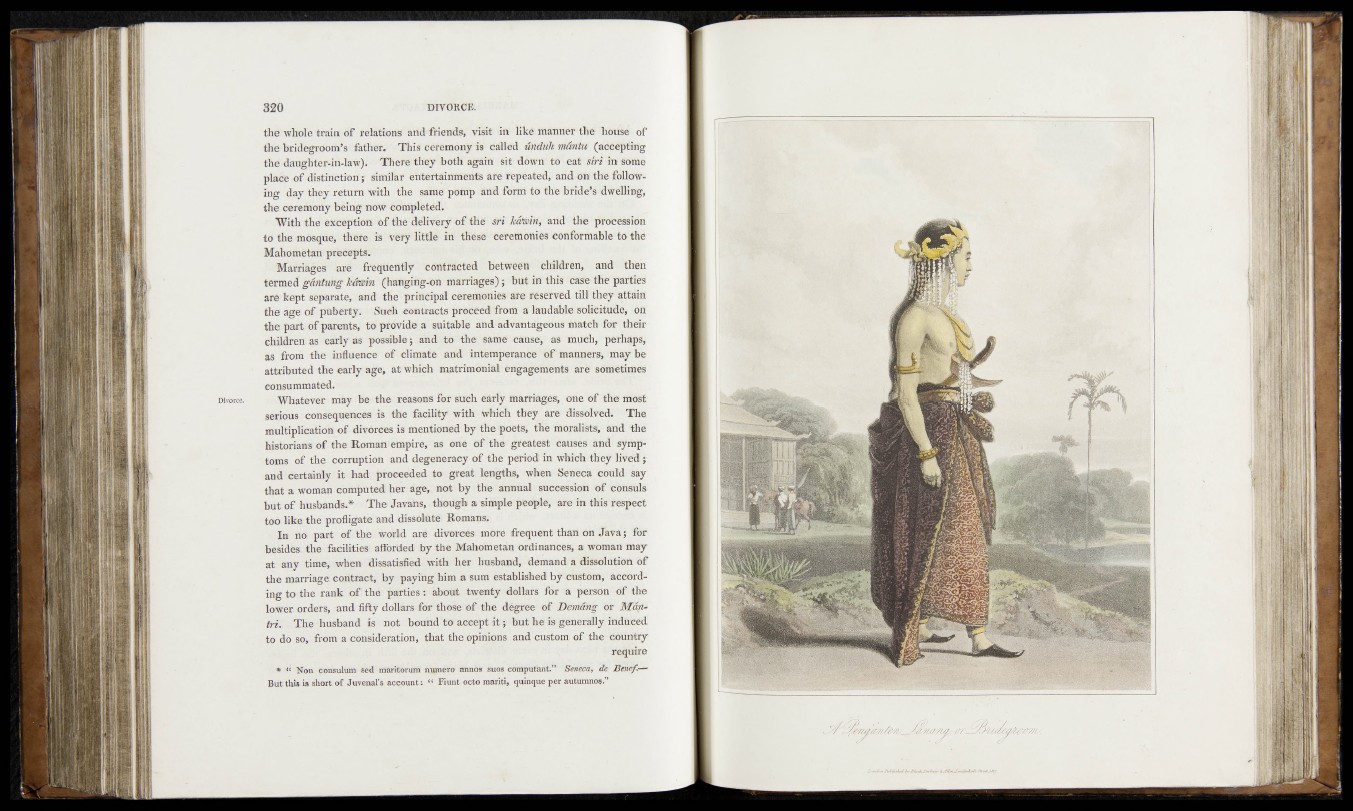
the whole train of relations and friends, Visit in like manner the house of
the bridegroom’s father. This' ceremony is called ûnduh mântu (accepting
the daughter-in-law)! ' There they both again sit down to eat siri in some
place of distinction ÿ similhr entertainments are fepéated, and on the following
day they return with the sathe pomp and form to the bride’s dwelling,
the ceremony being now cbropfetéd.
With the exception Of the delVery of thë sri kâwin, and the' procession
to the mosque, there is very little in these ceremonies conformable to the
Mahometan precepts.
Marriages are fréqüentiy contracted between children, and then
termed gântung kâwin (hanging-on marnages) ; but in this case the parties
are kept separate, and the principal ceremonies are résefvëd till they aftdin
the age of pùbërty. Stieh èóntracts proceed from a laudable solicitude, ori
the part of parents, to provide a suitable and advantageous match for their
children as early as possible j and to the same cause, as much, perhaps,
as from the influence of climate and intemperance o f manners, may be
attributed the early age, at which matrimonial engagements are sometimes
consummated.
Whatever may be the reasons for such early marriages, one of the most
serious consequences is the facility with Which they are dissolved. The
multiplication of divorces is mentioned by the poets, the moralists, and the
historians of the Roman empire, as One of the greatest causes and symptoms
of the corruption and degeneracy of the period in which they lived ;
and certainly it had proceeded to great lengths, when Seneca could Say
that a woman computed her âge, «not by the annual succession ©f oensuls
but of husbands.* The Javans, though a simple people, are in this respect
too like the profligate and dissolute Romans.
In no part of the world aré divorcés moré frequent than on Java; for
besides the facilities afforded by the Mahometan ordinances, a woman may
at any »mw, when dissatisfied with her husband, iemand a dissolution of
the marriage contract, by paying him a sum established! by custom, according
to the rank o f the parties : about twenty dollars for a person of the
lower orders, and fifty dollars for those of the degree of Demang or Maft-
tri.. The husband is not bound to accept i t y but he is generally induced
to do so, from a consideration, that the opinions and custom of the country
require
• « Non consulum sod maritorum numero anno» sues computânt.” Seneca, de Bihef.—
Bu t this is short o f Juvenal’s account ; “ Fiunt octo mariti, quinque per autumno».”
1viŸwnrf.. e?